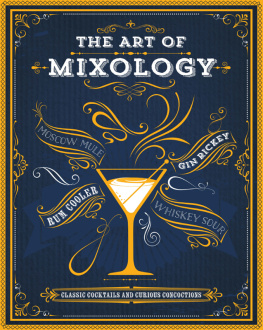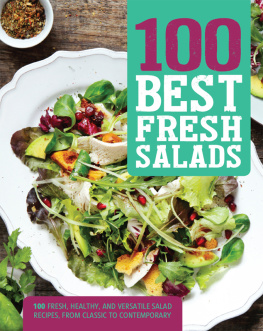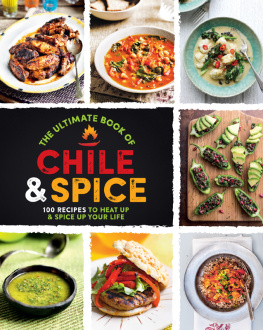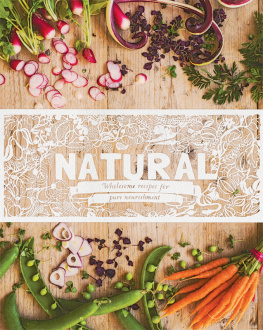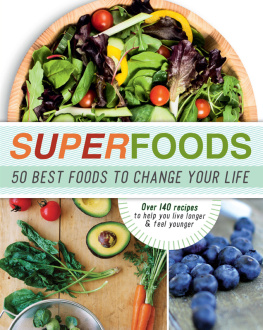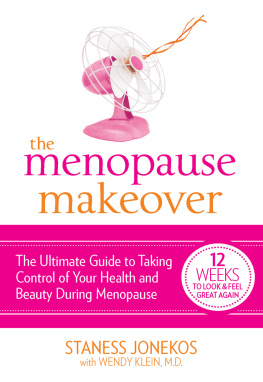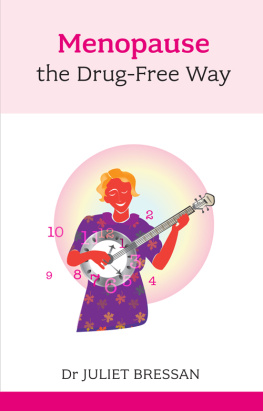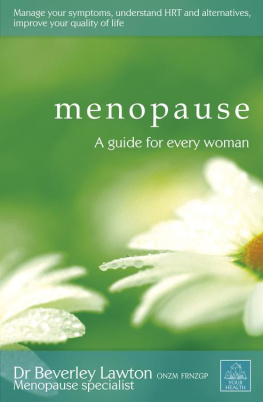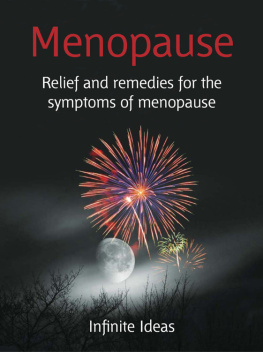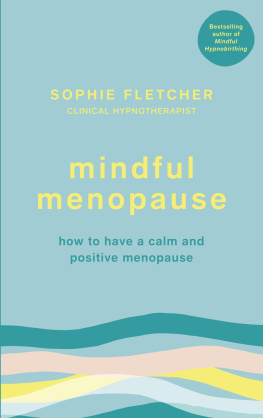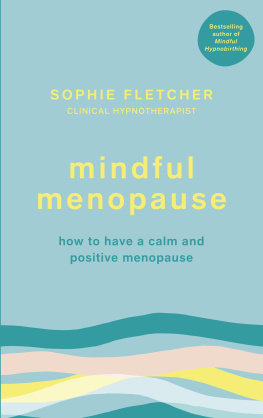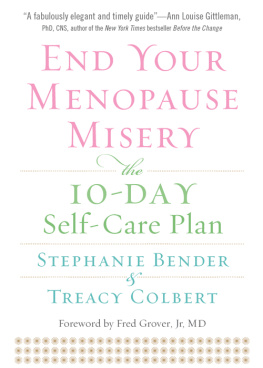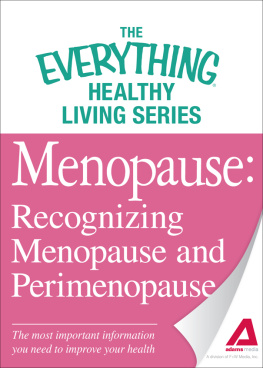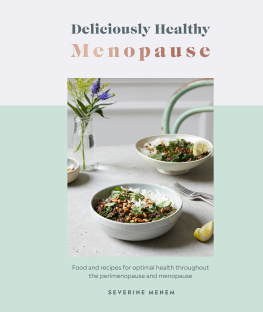Love Food Editors - 100 Best Foods for Menopause
Here you can read online Love Food Editors - 100 Best Foods for Menopause full text of the book (entire story) in english for free. Download pdf and epub, get meaning, cover and reviews about this ebook. year: 2016, publisher: Parragon Books Ltd, genre: Home and family. Description of the work, (preface) as well as reviews are available. Best literature library LitArk.com created for fans of good reading and offers a wide selection of genres:
Romance novel
Science fiction
Adventure
Detective
Science
History
Home and family
Prose
Art
Politics
Computer
Non-fiction
Religion
Business
Children
Humor
Choose a favorite category and find really read worthwhile books. Enjoy immersion in the world of imagination, feel the emotions of the characters or learn something new for yourself, make an fascinating discovery.

- Book:100 Best Foods for Menopause
- Author:
- Publisher:Parragon Books Ltd
- Genre:
- Year:2016
- Rating:3 / 5
- Favourites:Add to favourites
- Your mark:
- 60
- 1
- 2
- 3
- 4
- 5
100 Best Foods for Menopause: summary, description and annotation
We offer to read an annotation, description, summary or preface (depends on what the author of the book "100 Best Foods for Menopause" wrote himself). If you haven't found the necessary information about the book — write in the comments, we will try to find it.
100 Best Foods for Menopause — read online for free the complete book (whole text) full work
Below is the text of the book, divided by pages. System saving the place of the last page read, allows you to conveniently read the book "100 Best Foods for Menopause" online for free, without having to search again every time where you left off. Put a bookmark, and you can go to the page where you finished reading at any time.
Font size:
Interval:
Bookmark:


This digital edition published in 2016
LOVE FOOD is an imprint of Parragon Books Ltd
Parragon
Queen Street House
4 Queen Street
Bath BA1 1HE, UK
Copyright Parragon Books Ltd 2012
Copyright 2016 SIL International with Reserved Font Name Gentium Basic.
Copyright 2016 tyPoland Lukasz Dziedzic with Reserved Font Name Lato.
LOVE FOOD and the accompanying heart device is a registered trade mark of Parragon Books Ltd in Australia, the UK, USA, India, and the EU.
www.parragon.com
All rights reserved. No part of this publication may be reproduced, stored in a retrieval system, or transmitted, in any form or by any means, electronic, mechanical, photocopying, recording, or otherwise, without the prior permission of the copyright holder.
ISBN:978-1-4748-4015-6
Created and produced by Ivy Contract
Consultant: Judith Wills
New photography by Clive Streeter
Notes for the Reader
This book uses standard kitchen measuring spoons and cups. All spoon and cup measurements are level unless otherwise indicated. Unless otherwise stated, milk is assumed to be whole, eggs are large, individual vegetables are medium, and pepper is freshly ground black pepper. Unless otherwise stated, all root vegetables should be washed and peeled before using. Garnishes and serving suggestions are all optional and not necessarily included in the recipe ingredients or method.
The times given are only an approximate guide. Preparation times differ according to the techniques used by different people and the cooking times may also vary from those given. Optional ingredients, variations, or serving suggestions have not been included in the calculations.
If cooking for infants, the elderly, pregnant women, and anyone with a chronic illness, avoid recipes using raw or very lightly cooked eggs. Pregnant and breast-feeding women are advised to avoid eating peanuts and peanut products. People with nut allergies should be aware that some of the prepared ingredients used in the recipes in this book may contain nuts. Always check the packaging before use.
Nutritional data obtained from the USDA national nutrient database. Cup and spoon measurements are not exact but are given as a guidance.
When a woman enters her late forties or early fiftiesor, occasionally, earlier or later than thisher body goes through various far-reaching physical changes, as her ovulation and periods gradually stop. The months or years before the periods cease completely is called the perimenopause, while the time when they stop is the official menopause. The years following are termed postmenopausal, although many women continue to experience some of the symptoms associated with peri- and menopausal times, and they feel that they are still, practically speaking, going through menopause.
Symptoms of menopause include physical ones, such as hot flashesa feeling of unbearable heat, reddening, and perhaps sweatingnight sweats, insomnia, tiredness, headaches; plus general aches and pains, forgetfulness, and dry skin. They may also include emotional problems, such as anxiety, depression, mood swings, or tearfulness. Many of these symptoms are the result of the somewhat sudden and dramatic drop in levels of the hormone estrogen in the body.
While some women choose to try hormone replacement therapy (HRT) to deal with menopause, a lot of the symptoms can be improved considerably simply by making lifestyle changes. Getting regular exercise and fresh air, and pacing yourself are helpfulbut perhaps the most can be achieved through the right diet choices. What and how we eat can make a big difference to our health and well-being before, during, and after the menopausal years.
During menopause and afterward, we now know that there are many foodsall of which are featured in this bookthat have specific, positive effects on your health and well-being because of the particular nutrients and/or chemicals they contain. Some can help to minimize hot flashes or insomnia, for example, while others may improve your mood or lift depression. There are foods that can improve dry skin and others that will help you beat tiredness. In fact, whatever the menopausal symptom, there is a food that can help. If you choose from this food list regularly, you can make a real difference to how you feel, your quality of life, and your future life.
The general rules of healthy eating for adults still apply in the menopausal years. These, in brief are:
Eat at least five portions of fruit and vegetables a day (seven is better). Be sure you have both fruit and vegetablesnot all fruit, for example. Eat a rainbow of fruit and vegetables in different colors, and choose from different types of vegetables (such as leafy greens, root vegetables, beans) and fruits (fruit with pits, berries, citrus fruit, exotic fruit), so that you get a wide variety of all the beneficial chemicals and compounds in the different types.
Eat adequate proteinlean meat, poultry, seafood, fish, eggs, low-fat dairy produce, nuts, seeds, and beans, for example. Include oily fish in your diet at least two to three times a week.
Eat complex carbohydrates instead of simple typesfor example, choose whole-grain or whole-wheat bread, whole-grain cereals for breakfast, and brown rice and whole-wheat pasta instead of the highly refined white types. Keep your intake of sugar and other sweeteners low.
Include a moderate amount of fat in your diet, but make it monounsaturated fat (such as olive oil) or other healthy oils most of the time. Cut down on saturated fats, such as those in whole milk and other dairy and fatty meat, and trans fats, which are used in baked goods, snacks, and margarines.
Try to eat a natural diet; avoid packaged and canned goods or highly refined processed foods.
For women, keep alcohol intake to one glass a day, and have two alcohol-free days a week.
One of the consequences of the drop in hormone levels experienced during menopause is that women begin to lose bone density, and at a rapid rate. This is the main cause of osteoporosis in later life. Another consequence is that womens incidence of cardiovascular disease increases to the same level as mens, because the female hormones no longer offer the protection against the disease that they did before. Weight gain and type 2 diabetes also become much more common during and after menopause, because it appears our metabolic rate takes a dip, while hormonal changes mean the body is more predisposed to put on fat around the waist and abdomen. Many women also report a loss of libido.
The good news is that making the right food choices before, during, and after menopause can make a huge difference, benefitting us not only at the time, but also in the long-term. Even the risk of some types of cancer that commonly affect us in late middle age or old age can be minimized through what we eat. Its important to get into the habit of doing all you can now to limit the negative effects of this change in lifeby eating a vitamin D-, calcium-, and magnesium-rich diet for your bones, for example; by choosing foods that help to lower cholesterol and blood pressure for your heart, and that protect you from cancer; and by choosing healthy foods that satisfy your appetite without contributing too many calories.
The following pages will tell you all you need to know about which foods can help you the most, now and in the years ahead.
Font size:
Interval:
Bookmark:
Similar books «100 Best Foods for Menopause»
Look at similar books to 100 Best Foods for Menopause. We have selected literature similar in name and meaning in the hope of providing readers with more options to find new, interesting, not yet read works.
Discussion, reviews of the book 100 Best Foods for Menopause and just readers' own opinions. Leave your comments, write what you think about the work, its meaning or the main characters. Specify what exactly you liked and what you didn't like, and why you think so.

